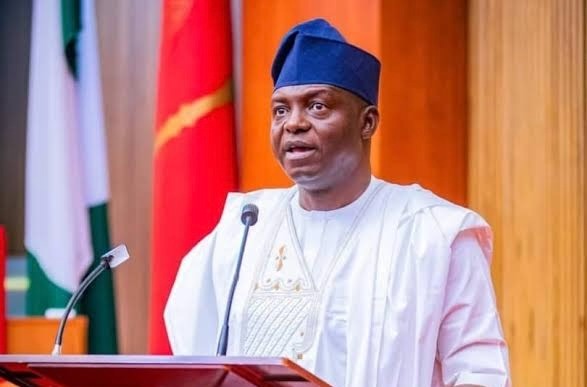In a strategic leadership shift aimed at bolstering party cohesion and grassroots credibility, the National Executive Committee (NEC) of the All Progressives Congress (APC) on Thursday unanimously elected Professor Nentawe Goshwe Yilwatda as the new National Chairman of the ruling party.
The decision follows the resignation of Dr. Abdullahi Ganduje, who stepped down to attend to what party sources described as “crucial private matters.”
Professor Yilwatda’s emergence signals a calculated effort by the APC to reposition itself ahead of the 2027 general elections by tapping into his rich blend of academic distinction, technocratic expertise, and political experience.
Born on August 8, 1968, in Dungung, Kanke Local Government Area of Plateau State, Yilwatda comes from a heritage of public service—his father, the late Reverend Toma Yilwatda, was a revered community leader.
A product of Boys’ Secondary School, Gindiri, Yilwatda’s academic journey saw him earn a first degree from the Federal University of Agriculture, Makurdi, a master’s from ATBU, Bauchi, and a PhD in Electronic and Computer Engineering from the University of Nigeria, Nsukka.
His academic career spanned over two decades, culminating in his role as the pioneer Director of ICT at his alma mater, where he spearheaded institutional digitization initiatives that earned him multiple accolades, including Best Director of the Year.
Yilwatda’s influence extends beyond academia. As a consultant to development giants like UNICEF, the European Union, World Bank, and TECHVILE USA, he has championed digital transformation projects that integrate technology into governance and service delivery—particularly in humanitarian and poverty reduction spaces.
His 2017 appointment as a Resident Electoral Commissioner with the Independent National Electoral Commission (INEC) marked another high point. While at INEC, he was instrumental in electoral reform, particularly in advocating for inclusive voting mechanisms for Internally Displaced Persons (IDPs) and Persons with Disabilities (PWDs). He also played a key role in expanding the role of technology in Nigeria’s electoral process.
In 2021, Yilwatda voluntarily stepped down from INEC to join politics and emerged as the APC’s gubernatorial candidate in Plateau State in the 2023 elections. He was also the Tinubu/Shettima Campaign Coordinator for Plateau, contributing to APC’s national electoral strategy.
Until his election as APC National Chairman, Professor Yilwatda served as the Minister of Humanitarian Affairs and Poverty Reduction, a role in which he championed inclusive welfare policies, digital relief systems, and inter-agency coordination to tackle extreme poverty.
He also sits on the Presidential Economic Management Team and chairs the Euro-African Dialogue on Migration and Development, showcasing his international development credentials and cross-border policy expertise.
Party insiders describe his elevation as a move to “inject fresh energy and credibility into party leadership.” His non-controversial image, technocratic background, and digital-first mindset are seen as assets in building a modern party machinery.
“This appointment is not just about replacing a chairman—it’s about redefining leadership in our party,” said one senior NEC member who spoke on condition of anonymity. “Professor Yilwatda brings a governance-first, solution-driven approach that we urgently need.”
As he assumes the mantle of APC National Chairman, Yilwatda is expected to focus on strengthening internal democracy, expanding youth engagement, modernizing party systems, and reconciling factions in key states ahead of upcoming off-cycle elections.
His journey—from lecture halls to the political frontlines—embodies a new wave of technocratic political leadership in Nigeria. Whether his tenure will translate into long-term electoral gains for the APC remains to be seen, but for now, his emergence signals a deliberate pivot toward digital governance, inclusion, and institutional credibility.
With the 2027 elections on the horizon, all eyes will now be on Professor Yilwatda to steer the APC through what many analysts say could be the most competitive electoral cycle since 1999





